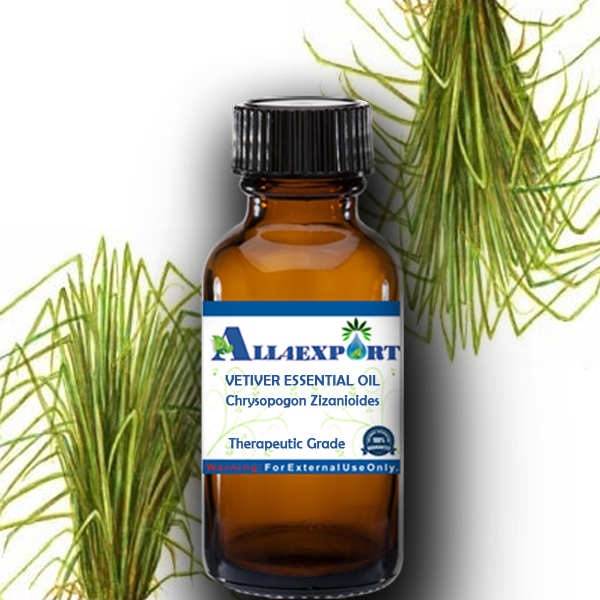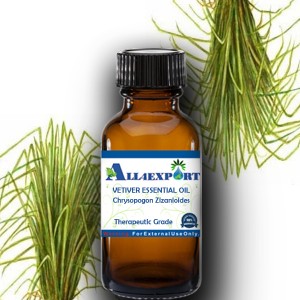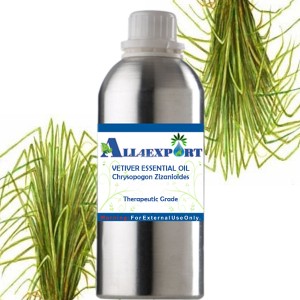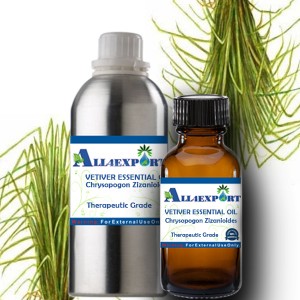| VETIVER ESSENTIAL OIL |
Botanical Name | : | Chrysopogen Zizanioides | Country of Origin | : | India | Solubility | : | soluble in alcohol Specific | Specific Gravity | : | 0.985 – 1.022 Optical Rotation : Refractive Index : Flash Point : Major Constituents : Extraction Method : | Optical Rotation | : | +14 - +46 | Refrective Index | : | 1.521 – 1.530 | Plant Part | : | roots | Bland With | : | Benzoin, grapefruit, jasmine, lavender and ylang-ylang. | CAS No | : | 8016-96-4 | Flash Point | : | 200F | Extraction Method | : | Steam Distillation |
|
Description : Vetiver oil, also known as khus oil, is a lesser-known plant oil that offers a heavy, earthy fragrance, which is reminiscent of patchouli but with a touch of lemon. It is believed to be very grounding, calming and stabilizing, and provides a range of essential oil uses and benefits. Learn more about this herbal oil.
|
Constituents : benzoic acid, vetiverol, vetiverone, vitivene, cadinene, furfurol, a and b-vetivone, vetivene and vetivenyl vetivenate. |
Uses : Vetiver essential oil can be Used as an anti-inflammatory, antiseptic, aphrodisiac, cicatrisant, nervine, sedative, tonic, and vulnerary substance.
|
Benefit : Vetiver essential oil is very effective in calming and soothing the mind and also It helps to dispel anger, hysteria, irritability and neurotic behavior. It revitalizes the body and helps make up for mental and physical exhaustion; and is also helpful for general aches and pains, especially for rheumatism, arthritis and muscular pain. |
Caution Note: We recommend Keep out of the reach of children. Avoid contact with skin and eyes.
All of the information and opinions that are provided on this web site are for informational and educational purposes only. This information is not intended to replace medical advice given by a medical practitioner. Anyone considering alternative therapies should consult with their medical professional before using an alternative method of healing. We do not give nor is any opinion on our web site medical advice.
|



